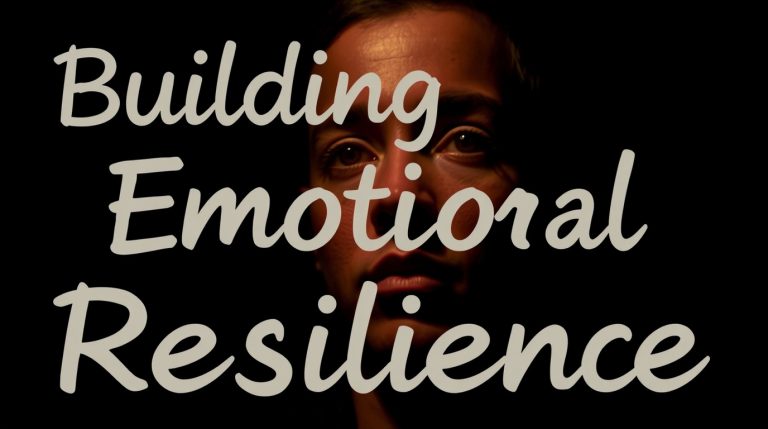We all experience mood swings from time to time, feeling on top of the world one moment and plunged into a low the next. For some, this emotional fluctuation can feel like an unpredictable rollercoaster ride, full of sharp turns and sudden drops. Understanding the factors behind mood swings can help us navigate these emotional shifts with greater clarity and resilience.
Table of Contents
What Are Mood Swings?
Mood swings are rapid and extreme changes in a person’s emotional state. These changes can vary in intensity and duration, ranging from mild irritability to deep sadness or intense euphoria. Mood swings often occur without warning, making it challenging to predict or control how one feels from moment to moment.
While mood swings can be a normal part of life, they may also signal underlying health conditions. They can be brief and triggered by external factors or persistent, with causes rooted in biological, psychological, or environmental factors.
Hormonal Fluctuations
One of the most common causes of mood swings is hormonal changes. Hormones play a crucial role in regulating our emotions, and fluctuations in these levels can have a profound impact on mood.
Puberty:
Adolescence is a time of significant hormonal changes as the body develops. Teenagers often experience emotional turbulence due to the shifts in estrogen and testosterone levels, leading to increased irritability, emotional outbursts, and unpredictable moods.
Menstrual Cycle:
For women, hormonal fluctuations during the menstrual cycle are a well-known trigger for mood swings. Premenstrual syndrome (PMS) and premenstrual dysphoric disorder (PMDD) are conditions where symptoms of irritability, sadness, and anxiety become more pronounced due to hormonal shifts before menstruation.
Pregnancy and Postpartum:
Pregnancy and the postpartum period are times of dramatic hormonal changes, which can significantly affect mood. Women may experience feelings of euphoria, anxiety, or depression as their hormone levels fluctuate.
Menopause:
As women transition into menopause, the decline in estrogen can lead to mood swings, hot flashes, and even depression or anxiety. These changes can be particularly challenging during the peri-menopausal years.
Mental Health Conditions
Mental health issues are another significant contributor to mood swings. Conditions such as depression, anxiety, and bipolar disorder can cause frequent and severe emotional shifts that impact a person’s well-being and daily life.
Bipolar Disorder:
Characterized by extreme mood swings, bipolar disorder involves alternating episodes of mania (elevated mood) and depression (low mood). The shifts can occur over days, weeks, or even months and can be severe, affecting a person’s ability to function.
Depression and Anxiety:
While depression is often associated with persistent sadness and low energy, people with anxiety disorders may experience emotional ups and downs, swinging between intense worry, fear, and irritability. In some cases, mood swings may occur as a result of the distress associated with these conditions.
Borderline Personality Disorder (BPD):
BPD is another condition marked by rapid shifts in mood. Individuals with BPD often experience intense emotions that can change quickly in response to external events, such as a perceived rejection or criticism. These emotional extremes can make relationships and daily functioning challenging.
Stress and Lifestyle Factors
Stress is an inevitable part of life, but chronic stress can take a heavy toll on our emotional stability. When faced with long-term stressors, our bodies release cortisol, the stress hormone, which can impact mood regulation.
Work and Personal Life Stress:
Heavy workloads, relationship challenges, financial strain, and caregiving responsibilities can all contribute to mood swings. Stress can trigger feelings of frustration, anxiety, and irritability, making it difficult to maintain emotional balance.
Sleep Deprivation:
Lack of sleep is another common factor in mood swings. When we don’t get enough rest, the brain struggles to regulate emotions, and we may become more reactive or prone to emotional outbursts. Chronic sleep deprivation is linked to irritability, anxiety, and even depression.
Diet and Exercise:
Our physical health plays a direct role in how we feel emotionally. Poor nutrition, such as diets high in sugar or lacking in essential nutrients, can cause energy dips and irritability. On the other hand, regular physical activity helps boost mood by releasing endorphins, which act as natural mood enhancers.
Substance Use
Substance use, including alcohol, drugs, and even caffeine, can also lead to mood swings. These substances can alter brain chemistry and affect how we perceive and react to emotions.
Alcohol:
Although alcohol may provide temporary relief from stress or anxiety, it is a depressant, and excessive drinking can lead to heightened mood swings. After the initial high, individuals may experience feelings of sadness or irritability.
Drugs:
Certain drugs, both legal and illegal, can trigger intense emotional highs followed by drastic lows. Stimulants like cocaine or amphetamines can create feelings of euphoria, but as the effects wear off, individuals may experience mood crashes.
Caffeine:
While caffeine is known for its stimulating effects, excessive consumption can cause jitteriness, irritability, and increased anxiety. The sudden drop in energy levels when caffeine wears off can also contribute to mood swings.
Other Potential Triggers
Beyond hormones, mental health, stress, and lifestyle factors, there are a few other triggers worth considering:
Trauma:
Past traumatic experiences can leave a lasting impact on emotional well-being. People who have experienced trauma, particularly in childhood, may be more prone to emotional instability and mood swings.
Chronic Illness:
Chronic conditions, including autoimmune disorders, thyroid imbalances, and diabetes, can significantly impact mood. For instance, hypothyroidism is commonly linked to depression and fatigue, while diabetes can cause mood swings due to fluctuations in blood sugar levels. Additionally, adrenal fatigue, often associated with chronic stress, can also lead to mood instability. If you’re experiencing symptoms related to adrenal fatigue, seeking treatment in Salt Lake City can help restore balance and alleviate these emotional and physical effects.
In Conclusion
Mood swings can be frustrating, but understanding the underlying factors behind them is the first step toward managing their impact on daily life. Whether triggered by hormonal changes, mental health conditions, lifestyle factors, or external stressors, recognizing the root cause can help individuals seek appropriate treatment or make lifestyle adjustments. If mood swings become frequent or debilitating, it’s essential to consult a healthcare professional for support and guidance. By taking a proactive approach, it’s possible to ride the emotional rollercoaster with greater ease and regain emotional balance.







